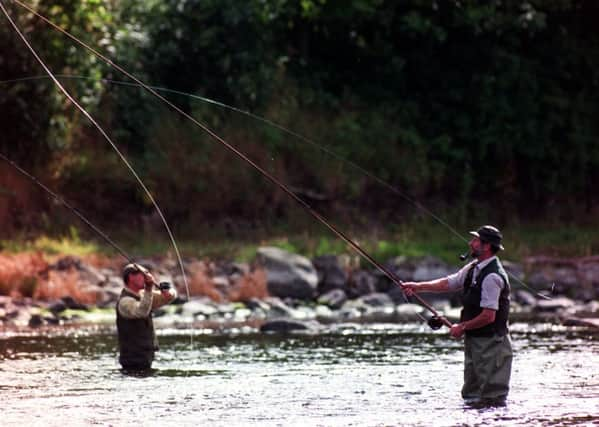River Tweed fishery bosses fight new ‘licence to kill’


Following a review of wild fisheries, Scottish ministers have signalled their intention to introduce the so-called ‘licences to kill’ by amending the unique legislation which covers the catchment on both sides of the border.
The control and conservation regime would require all 165 registered beat owners to apply for the licences, with applications assessed on the number of salmon taken on each fishery over a five-year period.
Advertisement
Hide AdAdvertisement
Hide AdAlong with a requirement for all carcasses to be individually tagged, the proposal has elicited widespread local opposition with claims that it could severely hit an industry which is worth £18million a year and supports around 500 full-time jobs.
An estimated 30,000 anglers fish the Tweed and its tributaries every year.
The River Tweed Commission (RTC) – responsible for the general preservation and increase of salmon and other freshwater fish in the river –believes “hundreds” of owners and anglers, along with no fewer than 63 boatmen, has submitted objections during a formal consultation period which ended yesterday.
In its own hard-hitting submission, the RTC says it supports the introduction of licences and tagging for salmon caught for sale, but not for rod-caught fish which cannot be sold.
Advertisement
Hide AdAdvertisement
Hide AdThe commission maintains there has been no decline in the status of stocks of Tweed salmon on which the proposals are predicated and there is therefore no conservation reason for introducing licensing or tagging.
“Two-thirds of all salmon caught by rod and line after June are returned and, as his is less than 10% of the run, only a maximum of between 3 and 4% of the total number of fish entering the river is killed,” states the RTC.
“This is biologically insignificant and does not warrant control measures.
“Basing the ‘kill licence’ on five-year averages is numerically flawed because it means the average would reduce each year and never result in a higher number being allowed to be taken.
Advertisement
Hide AdAdvertisement
Hide Ad“Effectively it would result in the introduction of total ‘catch and release’ over a number of years which would be unnecessary and financially damaging.”
The RTC argues that tagging is only necessary for fish which are sold because it provides traceability for consumer protection and the control of illegal trade, but adds: “Rod-caught fish cannot be sold and therefore should not be tagged”.
The submission concludes: “These proposals are unnecessary and would financially damage Tweed fisheries, remove the property rights of fishery proprietors and be complicated to enact and difficult and costly to enforce.”
According to Marine Scotland, a directorate of the Scottish Government, licensing will provide “a new mechanism to control the killing of wild salmon, ensuring that where harvesting takes place, it is sustainable”.